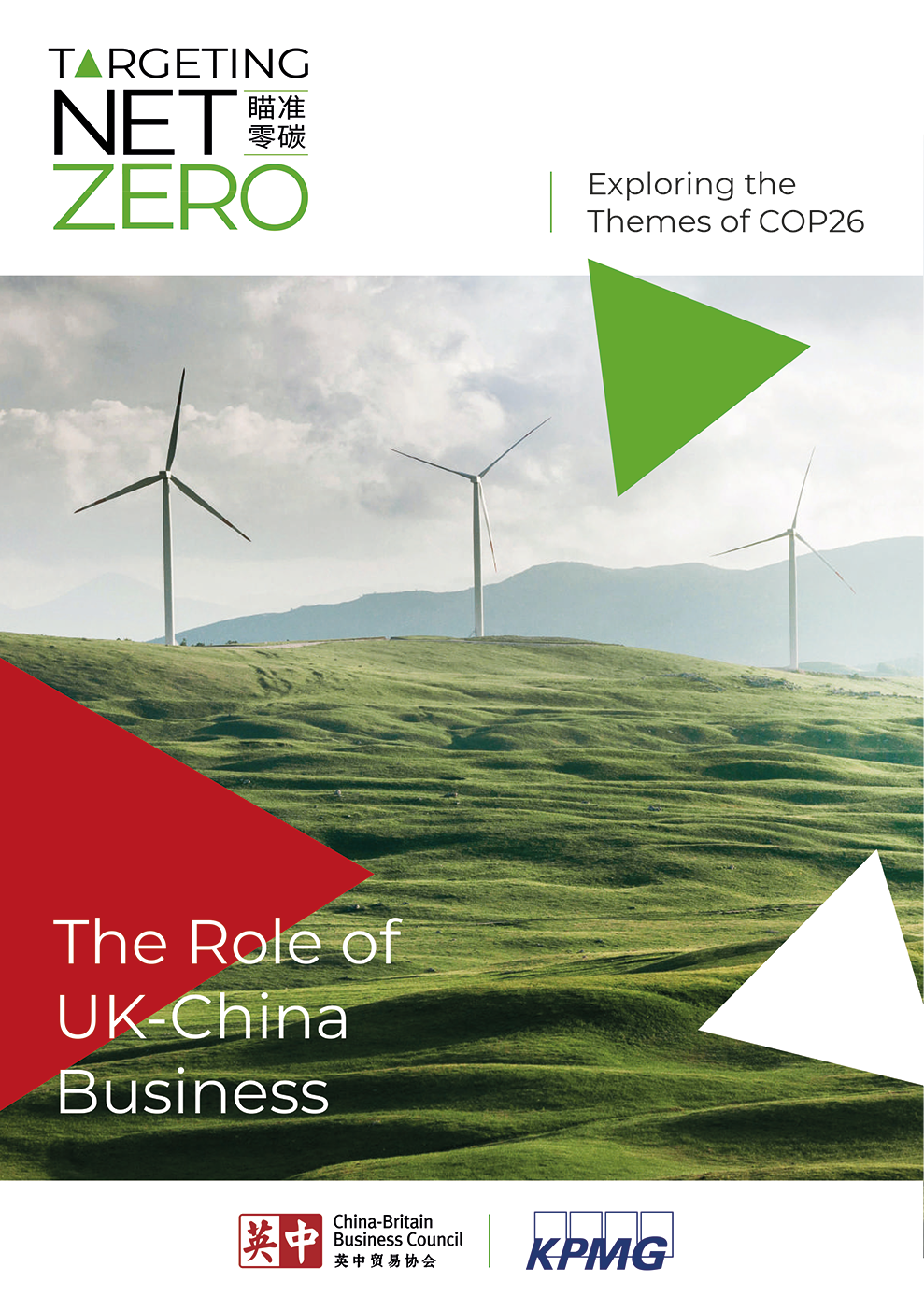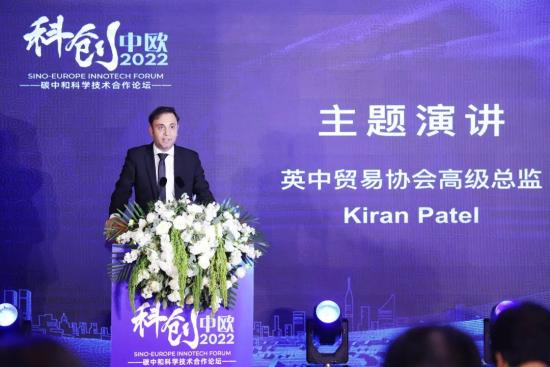Working Together - CBBC’s Net Zero & Green Transition Programme
The UK-China Green Manufacturing Report also provides other recommendations in the technical fields for the UK and China to engage in collaboration, thanks to both countries’ interests in materials and energy efficiency. The recommendations are to identify specific areas of green manufacturing for collaboration, whether it be in the design of green products or the economics of green manufacturing, to create a framework for such collaboration to determine the parties involved and the appropriate routes to take, and to focus on the “three Cs” when choosing and working with partners: compatibility, communication, and co-ordination.

CBBC launched our first Net Zero report during COP26 to highlight the areas where the UK and China is already partnering to reduce carbon emissions and protect our environment. We will also soon begin work on our second Net Zero report and programme of activities which will take a deeper look at the potential for new areas of UK-China cooperation here in China. Copies of our first report can be downloaded by clicking here.
In addition to our Net Zero reports, CBBC is in the process of launching a Green Transition Working Group which will form the focal point for the work we do with our members across the UK and China. This group will look to engage key central and regional Government departments as well as provide a platform for information sharing and collaboration.
If you would like to get involved in our programme or are seeking to explore marketing opportunities for your business in China, please contact James.Brodie@cbbc.org (UK) or Mark.Xu@cbbc.org (China).
We look forward to continuing our work supporting the carbon neutrality agenda and furthering the growth of bilateral trade and investment between the UK and China.








